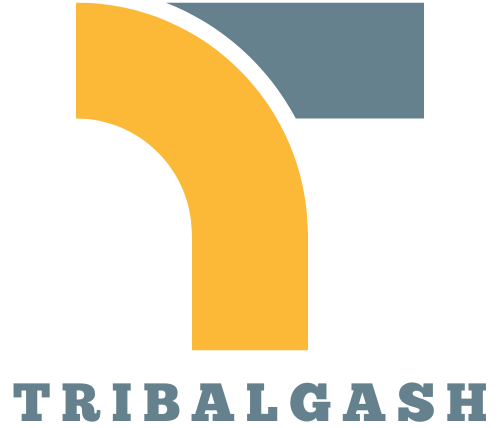In today’s fast-paced world, personal career development isn’t just a buzzword; it’s the secret sauce to thriving in any profession. Think of it as your personal GPS, guiding you through the twists and turns of the job market. Without it, you might find yourself lost in a maze of mediocre positions, wondering where all the excitement went.
Table of Contents
ToggleUnderstanding Personal Career Development
Personal career development focuses on the process of building skills, experiences, and knowledge that align with individual career goals. It helps professionals navigate their career paths effectively.
Definition of Personal Career Development
Personal career development encompasses various activities aimed at enhancing one’s career prospects and satisfaction. It includes goal setting, identifying skill gaps, and actively pursuing opportunities for growth. Pursuing training, seeking mentoring, or networking with professionals contribute to this continuous process. Individuals create personal action plans to stay directed and motivated toward achieving defined objectives. Tracking progress fosters accountability and highlights areas for improvement.
Importance of Personal Career Development
Personal career development plays a crucial role in maintaining relevance in today’s competitive job market. It enables professionals to adapt to changing industry demands while fostering job satisfaction. Engaging in career development reduces the risk of career stagnation and enhances promotion opportunities. Professionals equipped with updated skills remain valuable assets to their organizations, leading to increased job security. Continuous learning stimulates personal growth, aiding individuals in their quest for fulfillment in their careers.
Key Components of Personal Career Development
Personal career development consists of several key components that guide individuals in creating a fulfilling professional journey. Through self-assessment, goal setting, and skill development, one can effectively navigate their career path.
Self-Assessment
Self-assessment plays a critical role in personal career development. It involves evaluating one’s strengths, weaknesses, interests, and values. By conducting a personal inventory, individuals can identify areas for improvement. Tools like personality tests and skills assessments can provide valuable insights into potential career paths. Reflective practices such as journaling help clarify aspirations. This process encourages individuals to align their choices with their authentic selves. Engaging in self-assessment consistently leads to more informed career decisions.
Goal Setting
Goal setting is fundamental in directing personal career development. Clear, attainable goals serve as a roadmap. Individuals can use the SMART criteria—specific, measurable, achievable, relevant, and time-bound—to create effective objectives. Short-term goals facilitate immediate progress, while long-term goals outline broader aspirations. Regularly revising these goals ensures alignment with evolving interests and market trends. Establishing deadlines increases accountability and motivation. This structured approach helps individuals stay focused and driven in their career pursuits.
Skill Development
Skill development is essential to remain competitive in today’s job market. Continuous learning through various formats enhances employability. Formal education, online courses, and workshops offer diverse opportunities to build expertise. Gaining relevant certifications adds credibility and value. Networking with industry professionals can uncover skill gaps and provide guidance on necessary competencies. Individuals can also seek mentorship to gain insights from experienced colleagues. Dedication to skill development fosters personal growth, making individuals invaluable assets to their organizations.
Strategies for Effective Personal Career Development
Individuals can enhance their career paths through specific strategies focused on networking, continuous learning, and seeking mentorship.
Networking
Networking plays a crucial role in personal career development. Building connections with professionals in the same field opens opportunities for collaborations and job referrals. Attending industry events, engaging in online forums, and joining professional organizations fosters relationships that can lead to job opportunities. Developing an active online presence on platforms like LinkedIn provides exposure to potential employers and industry peers. Prioritizing networking cultivates a supportive community that shares insights, resources, and opportunities, ultimately driving career advancement.
Continuous Learning
Continuous learning fuels personal career development by ensuring individuals stay relevant in a changing job market. Pursuing educational opportunities through workshops, seminars, and online courses enhances skill sets and knowledge. Engaging with new technologies and industry trends establishes a competitive edge. Many professionals invest time in certification programs to gain specialized credentials, which can lead to promotions or new job roles. Committing to a regimen of lifelong learning empowers individuals to adapt, grow, and meet evolving employer expectations effectively.
Seeking Mentorship
Seeking mentorship provides valuable guidance for personal career development. Connecting with experienced professionals offers insights into industry best practices and career progression strategies. Mentors share their experiences and provide constructive feedback, enriching the mentee’s growth. Establishing a mentor-mentee relationship often leads to networking opportunities and professional recommendations. Prioritizing mentorship helps individuals navigate challenges and gain a clearer understanding of their career goals, plus it fosters accountability in achieving those aspirations.
Tools and Resources for Personal Career Development
Various tools and resources exist to support individuals in personal career development. These resources enhance skills and facilitate growth along professional paths.
Online Courses and Workshops
Numerous online courses and workshops cater to diverse interests and skill levels. Organizations such as Coursera and Udemy offer a wide range of subjects, including business management and data analysis. Interactive platforms provide opportunities for hands-on projects, fostering deeper understanding. Engaging in workshops hosted by industry leaders allows participants to gain practical insights. Additionally, many platforms offer certification upon completion, enhancing credentials for career advancement.
Career Development Platforms
Dedicated career development platforms serve as comprehensive resources for professionals. LinkedIn Learning provides access to thousands of courses tailored to specific skills and career trajectories. Users can create personalized learning paths focused on both hard and soft skills. Other platforms, like Skillshare and Pluralsight, focus on creative and technical skills, ensuring diverse options for learners. Utilizing these platforms allows individuals to track progress and remain accountable in their professional growth.
Books and Literature
Books and literature can offer profound insights into personal career development. Titles such as “The 7 Habits of Highly Effective People” provide valuable frameworks for success. Reading industry-specific literature helps individuals stay informed about emerging trends and practices. Additionally, autobiographies of successful professionals often serve as inspiration, showcasing diverse career paths. Engaging with this material can enhance understanding and motivate individuals to pursue personal goals.
Personal career development is an essential journey for anyone looking to thrive in today’s competitive job market. By actively engaging in self-assessment and skill enhancement, individuals can align their professional paths with their aspirations. The strategies discussed—goal setting, networking, and continuous learning—serve as powerful tools that empower professionals to take charge of their careers.
It’s not just about landing a job; it’s about creating a fulfilling career that evolves with changing industry demands. By leveraging resources and seeking mentorship, individuals can stay motivated and accountable. Ultimately, investing in personal career development leads to greater job satisfaction and long-term success.









